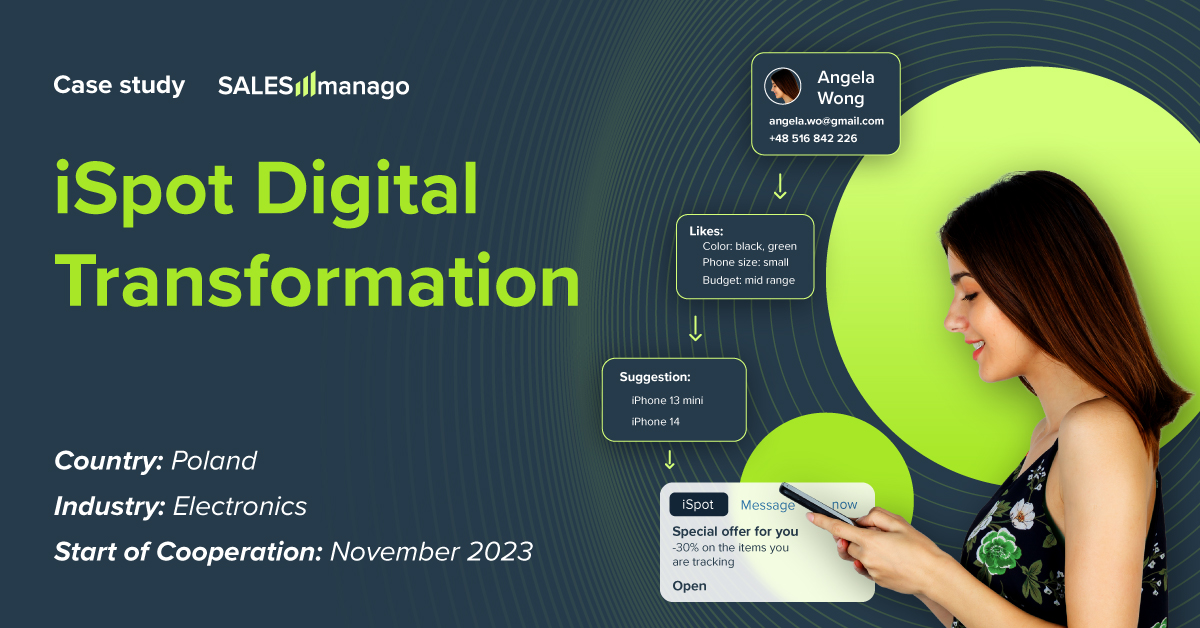
In an increasingly competitive marketplace, eCommerce businesses need to manage large volumes of data, personalize user experiences and maintain effective communication across multiple channels. Marketing automation is a technology-driven solution to optimize and automate marketing processes, reducing manual effort and improving campaign efficiency.
This article explores the benefits of implementing automated marketing strategies in eCommerce, highlighting the impact on sales, user experience and operational efficiency.
What is Marketing Automation in Ecommerce?
Marketing Automation in eCommerce uses software and technology to streamline, automate and measure marketing tasks and workflows. It aims to improve efficiency and deliver personalized customer experiences.
Online retailers can use automation to manage repetitive processes such as email campaigns, social media posts, customer segmentation and targeted advertising. This enables continuous customer interaction throughout the buying process, optimizing resources and maximizing return on investment (ROI).
Tools integrated with online stores enable real-time monitoring of customer behaviour, triggering personalized offers, retrieving abandoned baskets and sending dynamic content based on shopping habits. Unlike traditional approaches, which focus on lead generation, eCommerce marketing automation is aimed at increasing immediate sales, improving long-term value and customer retention.
Some concrete examples of applying automation in eCommerce include actions related to:
Abandoned Cart Emails - Automatically sending reminders to customers who have left products in their cart, encouraging them to complete the purchase.
Personalized product recommendations - AI-generated suggestions based on browsing and purchase history to increase average order value.
Automated email campaigns - Email sequences triggered by user actions, such as welcome emails, anniversary discounts or post-purchase messages.
Loyalty and rewards programs - Automated tracking of customer purchases and interactions to provide incentives and encourage return visits.
Chatbots and AI assistants - Instant answers to customer queries, improving service efficiency and user engagement.
Why Marketing Automation is Critical for eCommerce Success
ECommerce businesses of all sizes can benefit substantially from marketing automation. The software and platforms available today are developed specifically to meet the needs of eCommerce businesses, offering solutions that streamline processes and improve results. Here are some of the most important benefits of marketing automation for eCommerce:
Saving time for the marketing team
Repetitive and time-consuming tasks can be automated, allowing marketing teams to focus on strategy and optimization. Some 43% of marketers implement automation precisely to improve productivity.
Reduce human error
When processes are done manually, there's a higher risk of mistakes, especially in repetitive tasks like sending emails or segmenting customers. Automation eliminates these errors, ensuring the right messages are delivered at the right time without the risk of costly mistakes.
Increase customer retention
Retaining customers is just as important as attracting new buyers. With automation, personalized messages are sent based on user behaviour, leading to more effective and relevant interactions. Studies show that over 80% of consumers are more likely to buy from a site that offers a personalized experience, and 48% are willing to spend more under such conditions.
More time for optimization and advanced strategies
Marketing automation not only reduces manual workload, it also provides additional time for analysis and optimization. Marketers can use time to refine campaigns, test message variations and implement more effective strategies. Modern platforms also allow for A/B testing of different elements, such as email subject lines, images or personalized offers, so that only the best-performing variants are used.
By integrating marketing automation, eCommerce businesses can significantly improve operational efficiency, increase conversion rates, and deliver better customer experiences, which directly contribute to long-term success.
Key Components of Marketing Automation in eCommerce
The key components of marketing automation in eCommerce cover a variety of operational processes for which the traditional approach would have involved time, energy and repetitive activities on the part of staff. Here are the main tasks handled by one or more eCommerce marketing software applications.
Email Marketing Automation. By automating processes, specialized software can send welcome messages at registration, when creating an account, about products forgotten in the shopping cart or to ask for post-purchase feedback.
Personalized Recommendations. Based on the analysis of users' behaviour, information collected through cookies and forms, it can determine their interests and send personalized suggestions to stimulate the purchase decision.
Customer Segmentation. Tasks that are repetitive and difficult to perform manually, can be performed automatically based on collected data about preferences, demographics, online and brand behaviour.
Social Media and Ad Campaign Automation. Scheduled posts and retargeting ads improve visibility and engagement.
Loyalty Programs and Promotions. Automated reward point allocation and notifications are designed to increase customer retention.
Analytics and Performance Monitoring. Specialized software generates automated reporting on campaign success and customer behaviour.
Benefits of Marketing Automation in eCommerce
Marketing automation in eCommerce has a number of advantages for businesses in this sector; the more functionality the software has, the better the tasks are covered. Here are the most important benefits:
Saves time and reduces manual workload
Marketing automation removes repetitive tasks such as sending emails or updating customer segments, allowing teams to focus on more effective strategies. This leads to better use of resources and faster execution of campaigns.
Enhances personalisation at scale
Automatic segmentation and dynamic recommendations allow the delivery of relevant messages to each client, depending on their behaviour and preferences. Thus, the user experience becomes more personalized, increasing the chances of conversion.
Increase customer retention and loyalty
By automating loyalty programs and post-acquisition messages, companies can maintain a constant relationship with customers. Proactive communication and personalized offers help to increase the loyalty and long-term value of each customer.
Boosts come back through efficient campaigns and upselling
Automation helps to quickly identify sales opportunities through cross-sell and upsell, directing relevant offers to the right customers. This process optimizes marketing costs and maximizes the profitability of each interaction.
Provides actionable insights with advanced analytics
Data collected from automated campaigns is converted into detailed reports that allow marketing teams to make data-driven decisions. This improves the effectiveness of campaigns and helps to identify strategies with the greatest impact on revenue.
Top Tools for Marketing Automation in eCommerce
Technological evolution has come to amazing performances for AI. While not being able to replace human resources, is a reliable help in performing repetitive tasks that involve routine work. Here are some of the best platforms you can use tu optimize your workflow in the eCommerce business, significantly increasing performance.
Klaviyo
Klaviyo is an advanced marketing automation platform, specializing in email and SMS marketing, with detailed segmentation and powerful integrations for eCommerce.
HubSpot
HubSpot offers a complete suite of marketing automation, including CRM, email marketing and advanced workflows for lead generation and conversion.
Mailchimp
Mailchimp is a popular email marketing platform, ideal for small and medium businesses, offering automation, customization and analytics tools.
ActiveCampaign
ActiveCampaign combines email marketing with powerful CRM and advanced automation, making it suitable for businesses looking for detailed segmentation and sophisticated engagement strategies.
Omniset
Omnisend is a marketing automation solution focused on eCommerce, integrating email, SMS and push notifications for effective omnichannel communication.
Shopify Email
Shopify Email allows marketers to create and send personalized campaigns directly from the Shopify platform, providing a simple and effective solution for email marketing.
SALESmanago
SALESmanago is an AI-based marketing automation platform that helps personalize customer interactions through email, SMS, push notifications and predictive analytics.
How to Implement Marketing Automation in eCommerce
There are many marketing automation solutions in eCommerce, and choosing the right software for your business needs is essential to achieving the desired performance. Here are the selection criteria for the best automated marketing tool.
Assessing needs and identifying automation opportunities
In order to successfully implement marketing automation in eCommerce, it is essential to identify weaknesses and set clear goals. Whether you want to increase conversions, reduce the rate of abandoned baskets or improve customer retention, a careful analysis of existing processes will help you identify priorities in implementing automation.
Choosing the right tools for your platform
An automation software must be compatible with your online store and meet your specific needs. Assessing the resources consumed by manual activities, using time monitoring tools and analysing case studies can guide you in choosing the solution with the best cost-benefit ratio.
Configuring automation flows and optimizing conversions
Customer route mapping and setting automation triggers are critical steps in creating effective campaigns. By integrating strategies such as abandoned basket recovery emails or personalised recommendations, you will be able to significantly improve your conversion rate.
Continuous testing, analysis and optimization
The success of automation depends on constantly monitoring performance and adjusting campaigns according to the data collected. Studying the ROI of your chosen solution, as well as analysing market trends, will allow you to constantly improve your automated marketing strategy and maximize the revenue generated.
Conclusions
By implementing marketing automation in eCommerce, businesses can streamline processes, improve customer experience, and increase conversion rates while reducing manual effort. From automatic sending of personalized emails and recovering abandoned baskets, to advanced customer segmentation and optimization of advertising campaigns, automation technologies offer an essential competitive advantage.
Choosing the right instrument and continuously adjusting strategies based on performance reviews are essential elements to maximise return on investment. In an ever-changing digital environment, automation is not just an option, but a necessity for the scaling and long-term success of an online store.
Latest posts

iSpot's Digital Transformation: How Poland's Apple Premium Partner Achieved 70x ROI with SALESmanago
When Poland's leading Apple Premium Partner sought to transform their customer experience from transactional to relational, they turned to SALESmanago. The results? A staggering 70x ROI, email engagement rates 1,334% higher than industry standards, and a seamless omnichannel experience that perfectly complements their premium product offerings. Here'...

Customer Engagement Software: The Complete Guide
There are modern tools today that help companies interact better with customers and build stronger relationships based on trust and loyalty. Customer engagement software (CES) is a smart investment for both small businesses and larger companies. The importance of CES lies in its ability to centralize communication, personalize expe...

#Growth Hack Series: Master Acquisition with Web Engagement Studio
Your website is leaking opportunities. Every. Single. Day.You're driving traffic. You're investing in campaigns. But most of your visitors exit without leaving anything behind—no d...